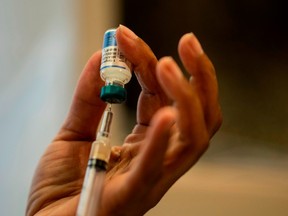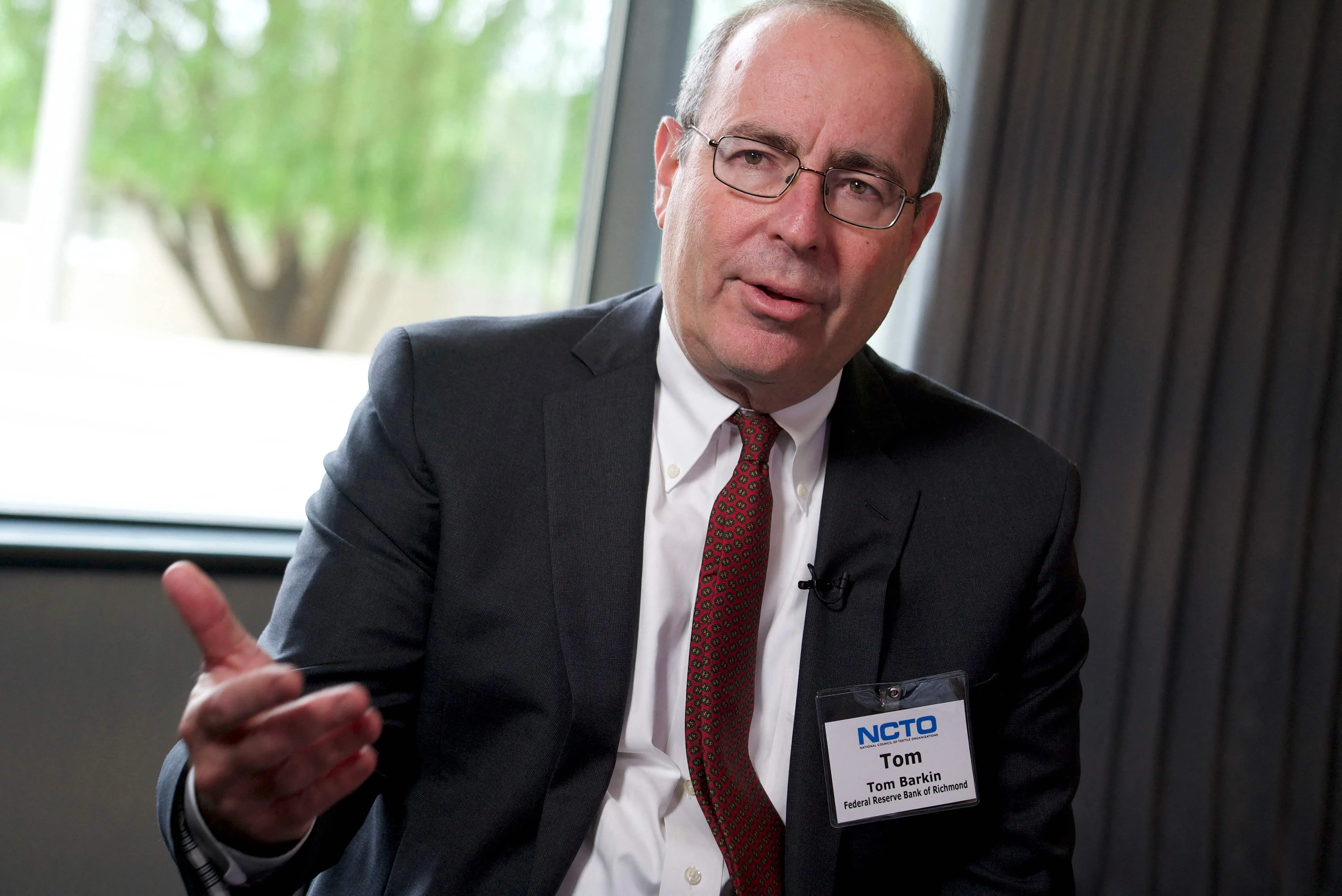‘We’re already beyond what we saw for the entirety of 2023, and it’s not even halfway through March yet,’ said scientist Raywat Deonandan
Article content
Many children with measles develop inanition, the medical term for a state of exhaustion from lack of food and water.
Children don’t want to eat or drink, said Dr. Brian Ward. “They’re moribund. They just lie there. You can put a needle into their arm to insert an IV and they don’t move.”
Article content
Measles is a “nasty” and exquisitely infectious disease, said Ward. The McGill University professor of medicine, and others, worry that it’s not a question of whether spring break travel will lead to more measles spread across Canada, but rather: “How bad will it be?”
Advertisement 2
Article content
The concern is that the sporadic cases cropping up across Canada will take hold in an increasingly susceptible population, making “exponential growth” a possibility, said University of Ottawa global health epidemiologist Raywat Deonandan.
As of Monday, 20 cases of measles had been reported to Canada’s public health agency so far this year, though that figure doesn’t reflect the true number. There have been 17 cases confirmed in Quebec, according to CTV, six in Ontario and one each in Saskatchewan and B.C. In 2023, a total of 12 cases were reported in Canada.
Article content
“I think we’ll see new cases; we might see an explosion of cases,” Deonandan said. “We’re already beyond what we saw for the entirety of 2023, and it’s not even halfway through March yet.”
Measles cases are rising because vaccination rates are falling, and vaccination rates are down for different reasons, including growing anti-vaccine sentiment and the lingering legacy of a fraudulent, discredited study that falsely implicated the combined measles, mumps and rubella (MMR) vaccines with autism.
Outbreaks of vaccine-preventable diseases that public health had hoped to eradicate point to a larger crisis in distrust in science, Deonandan and others said, a trust gap that widened during COVID-19. Public confidence in scientists is high but has fallen somewhat in recent years: The proportion of Canadians that say they have “a lot” or “some confidence” in scientists declined by nine percentage points between 2021 and 2023, down from 84 to 75 per cent, according to a Confidence in Leaders report by Environics Institute and partners.
Article content
Advertisement 3
Article content
“We don’t want to go back to the bad pre-vaccine days when measles killed hundreds of mostly kids every year,” Deonandan said on X, formerly known as Twitter.
But “slick, well-produced” disinformation videos posted online can reach millions of viewers within an hour, he said in an interview.
“We have this well-funded, well organized disinformation cadre in society that pushes any anti-science message just to create distrust and chaos,” Deonandan said.
“We have the RFK (Robert F. Kennedy) juniors who are contributing to this narrative that measles isn’t even caused by a virus but by toxins…. We have people claiming there is measles in the COVID vaccine.
“These are fringe (views) but they are common enough that they’re in my inbox every day,” he said. “What doesn’t go away is this narrative that MMR vaccine causes autism.”
Boosting public confidence in science doesn’t mean assuming society “would be better off with higher levels of uncritical trust in the scientific community,” write the authors of a new report in the journal PNAS.
“Instead, researchers, scientific organizations and the scientific community writ large need to redouble their commitment to conduct, communicate, critique, and — when error is found, or misconduct detected — correct the published record in ways that both merit and earn public confidence.”
Advertisement 4
Article content
It took 12 years for the journal, The Lancet, one of the highest impact journals in the world, to officially retract the 1998 article led by British doctor Andrew Wakefield linking MMR shots to gastrointestinal inflammation and autism, based on results from a study of 12 children.
The bogus scare and “elaborate fraud” led to a major medical scandal and steep drops in vaccination rates in Canada, the United States, Britain and other parts of Europe.
“There are still lots of people who still fervently believe that Andrew Wakefield is a martyr and measles vaccines cause autism,” Ward said.
Recommended from Editorial
Ward has seen lots of cases of measles over his career — in Peru, in Baltimore, where 30 per cent of adults in a tri-state breakout in the late 1980s ended up in hospital, and in Quebec, where an outbreak of more than 10,000 cases in 1989 led to five deaths and five people left with permanent brain damage.
About one in 1,000 people with measles will develop post infectious encephalomyelitis, an auto-immune attack against the brain. “I think that’s far too high a risk to take when the (MMR) vaccine is really safe and really effective,” Ward said.
Advertisement 5
Article content
Europe saw a 30-times higher number of measles cases in 2023 compared to 2022, with more than 30,000 measles cases reported between January and October 2023 compared to 941 cases in all of 2022, according to the World Health Organization.
As of March 7, 45 cases had been reported in 17 U.S. jurisdictions, including Florida and California, compared to a total of 58 cases for 2023; 2022 saw 121 cases in six jurisdictions.
“Small measles outbreaks (in Canada) would not be surprising given that many routine vaccinations were missed during the pandemic,” David Earn, a mathematical epidemiologist at McMaster University said in an email.
However, bigger outbreaks involving sustained exponential growth of cases “could occur only if a sufficiently large proportion of the population is susceptible.” Measles has a basic reproduction number of 12 to 18, meaning each infected person can go on to infect 12 to 18 others in a totally susceptible population, dwarfing the worst known COVID variant to date.
Earn didn’t have data needed to estimate the probability Canada might see exponential growth in measles cases. “However, we don’t need exponential growth in order to be concerned,” he said.
Advertisement 6
Article content
“Measles is a very serious infection, and we should be trying to avoid any outbreaks, large or small,” Earn said. “The solution is simple in principle: People who have missed vaccinations need to get their shots as soon as possible.”
Ward said Quebec could start to see larger, post-spring break outbreaks within days. Most of Quebec’s public elementary and high school students returned to class Monday. The incubation period from exposure to symptoms averages 10 to 12 days, but it can be as long as 21 days, according to Public Health Ontario.
Deonandan agreed that it’s a problem that’s “eminently solvable. Get everybody up to date on their vaccines,” he said. In Ontario, immunization coverage for measles among seven-year-olds dropped to 52.5 per cent in the 2021-22 school year, down from 85 per cent in 2019-2020.
Spring break travel is one concern, but “we’re already seeing community transmission,” Deonandan said. Ontario and Quebec have reported cases in people with an unknown source of exposure, meaning no history of travel and no link to a confirmed case. “So, clearly they got it somewhere — here,” Deonandan said.
Signs of measles include fever, a characteristic red, blotchy rash starting on the face and spreading head to toe, cough, runny nose and conjunctivitis, or pink eye.
Two doses of the MMR vaccine are routinely given in Ontario and many other provinces starting with the first dose at 12 months and the second dose at four to six years of age. Quebec administers the second dose at 18 months.
National Post
Our website is the place for the latest breaking news, exclusive scoops, longreads and provocative commentary. Please bookmark nationalpost.com and sign up for our newsletters here.
Article content








